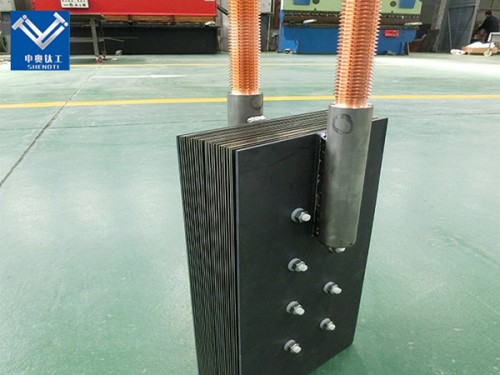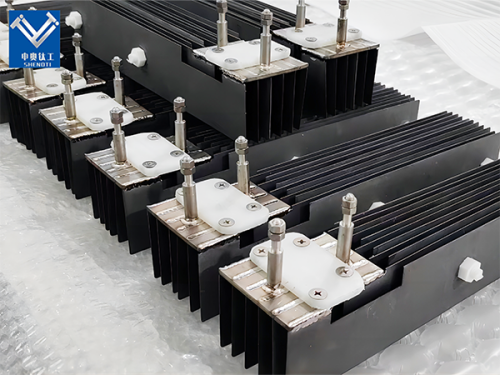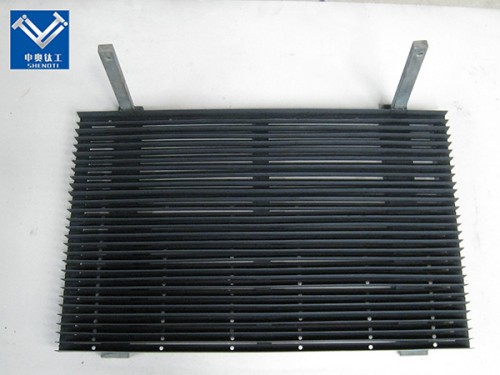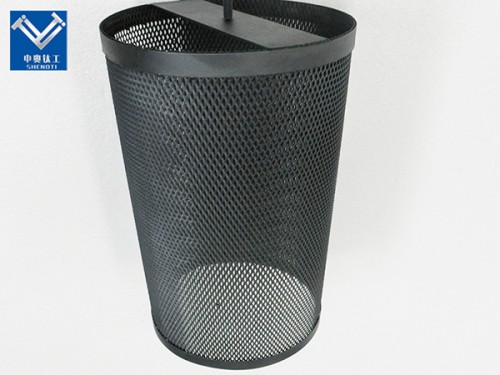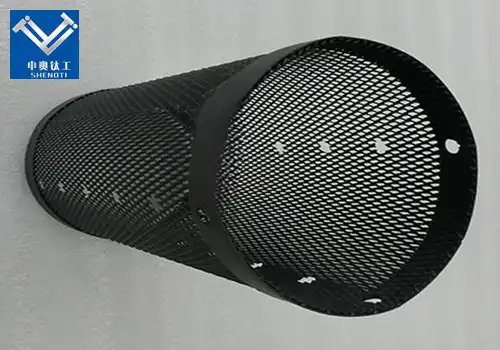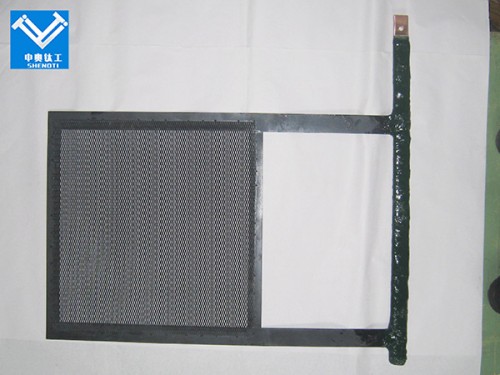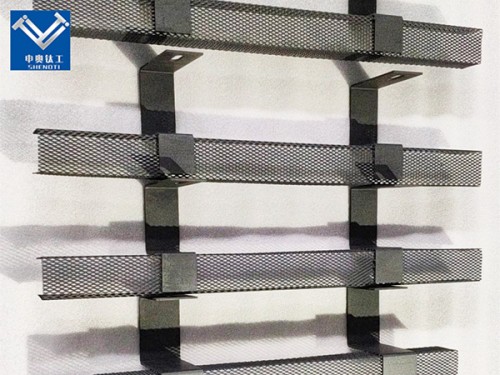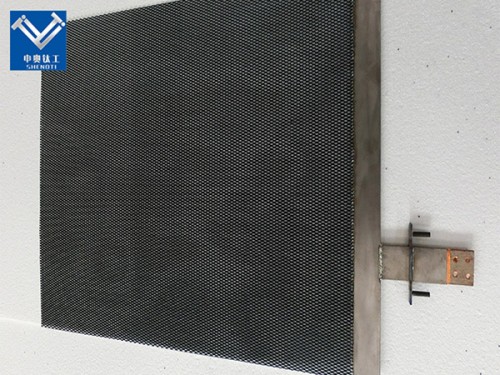
What Are Precious Metal Oxide Coated Anodes?
2025-09-08 16:42:27
Precious metal oxide coated anodes are among the most critical components in modern electrochemical applications. Known for their superior performance, durability, and cost-effectiveness compared to traditional anode materials, these anodes have transformed industries ranging from water treatment to electroplating. In this article, we will provide a detailed description of precious metal oxide coated anodes, explain their manufacturing process, highlight their advantages, explore industry applications, and analyze why they are considered a leading solution for sustainable and efficient electrochemical systems.
What Are Precious Metal Oxide Coated Anodes?
Precious metal oxide coated anodes, also known as dimensionally stable anodes (DSA), are titanium-based anodes coated with a thin layer of precious metal oxides such as ruthenium oxide (RuO₂), iridium oxide (IrO₂), platinum oxide (PtO₂), or mixed metal oxides (MMO). The titanium substrate provides mechanical strength and corrosion resistance, while the precious metal oxide coating enhances electrical conductivity and catalytic activity.
Key Features Precious Metal Oxide Coated Anodes
Corrosion Resistance: Titanium base resists aggressive environments.
High Conductivity: Precious metal oxides ensure efficient current distribution.
Stable Dimensions: The anode maintains its shape even after prolonged use.
Long Service Life: Optimized coating thickness increases durability.
Why Titanium Substrate?
Titanium is chosen because it forms a protective oxide film on its surface, preventing corrosion and providing a stable base for the oxide coating. Unlike other metals, titanium ensures mechanical stability without compromising electrochemical efficiency.
Manufacturing Process of Precious Metal Oxide Coated Anodes
The production of precious metal oxide coated anodes involves advanced material science and precision coating techniques. The steps are as follows:
1: Titanium Substrate Preparation
Titanium sheets, tubes, or mesh are selected.
Surface cleaning involves acid etching, sandblasting, and ultrasonic cleaning to ensure maximum coating adhesion.
2: Coating Application
A solution containing precious metal salts (chlorides or nitrates) is prepared.
The solution is applied onto the titanium substrate through techniques such as brush coating, dip-coating, or spraying.
3: Thermal Decomposition
The coated substrate is baked at high temperatures (typically 400–600°C).
Heat decomposes the salts, leaving behind a dense and adherent layer of metal oxides.
4: Multiple Layering
The coating and baking steps are repeated multiple times to achieve the desired thickness.
Layer uniformity ensures consistent electrical performance.
5: Quality Testing
Coated anodes undergo electrochemical testing, adhesion tests, and accelerated life evaluations.
Quality assurance guarantees long service life and consistent performance.
This precise manufacturing process makes precious metal oxide coated anodes highly reliable in demanding applications.
Technical Advantages of Precious Metal Oxide Coated Anodes
Superior Catalytic Activity
The mixed precious metal oxides provide excellent oxygen and chlorine evolution properties, making them highly efficient in electrochemical reactions.
1. Energy Efficiency
Compared to conventional graphite or lead anodes, these anodes reduce energy consumption by lowering overpotential during electrolysis.
2. Extended Service Life
With proper coating design, the service life can exceed 10–20 years in certain environments, reducing maintenance costs.
3.Customizable Performance
Different oxide mixtures can be tailored for specific reactions. For example:
RuO₂-based anodes: Ideal for chlorine evolution.
IrO₂-based anodes: Suitable for oxygen evolution.
PtO₂ coatings: Best for high current density applications.
4. Environmental Benefits
No toxic byproducts like lead-based anodes.
Enhanced efficiency contributes to lower carbon emissions.
Industry Applications of Precious Metal Oxide Coated Anodes
The versatility of precious metal oxide coated anodes allows them to serve across a wide range of industries:
1. Water Treatment and Electrochlorination
Used in seawater chlorination for power plants and desalination.
Disinfection of municipal drinking water.
Wastewater treatment through advanced oxidation processes.
2. Electroplating and Surface Finishing
Provide stable current density for uniform metal deposition.
Widely used in gold, silver, nickel, and copper plating industries.
3. Chlor-Alkali Industry
Critical in the production of chlorine and caustic soda.
Replace traditional mercury and diaphragm processes with safer alternatives.
4. Cathodic Protection
Protect offshore structures, pipelines, and storage tanks from corrosion.
Ensure long-term reliability in marine and industrial environments.
5. Electronics and Semiconductor Manufacturing
Used in etching processes and printed circuit board (PCB) manufacturing.
6. Chemical Processing
Applied in the production of persulfates, chlorates, and peroxides.
Enable efficient large-scale electrochemical synthesis.
Case Studies Precious Metal Oxide Coated Anodes
1: Seawater Desalination Plant
A Middle Eastern desalination facility adopted precious metal oxide coated anodes for seawater electrochlorination, achieving a 30% reduction in maintenance costs and extending service life by over 8 years compared to traditional anodes.
2: Electroplating Industry
A European plating company replaced graphite anodes with titanium-based oxide-coated anodes, improving plating uniformity, reducing energy consumption by 20%, and lowering reject rates significantly.
3: Offshore Oil Platforms
Oil companies implemented MMO-coated titanium anodes for cathodic protection, extending structural lifespan and reducing costly shutdowns due to corrosion.
Technical Specifications Precious Metal Oxide Coated Anodes
When selecting precious metal oxide coated anodes, several technical parameters are considered:
Substrate Material: Titanium Grade 1 or Grade 2.
Coating Composition: RuO₂, IrO₂, PtO₂, or MMO blends.
Current Density Range: 50–2000 A/m².
Service Life: 5–20 years depending on application.
Shape & Form: Mesh, plate, tube, rod, or custom designs.
These parameters can be customized based on industry requirements.
Why Choose Precious Metal Oxide Coated Anodes from a Trusted Supplier?
Choosing a reliable manufacturer ensures:
High-purity titanium substrates.
Optimized coating thickness for maximum performance.
Strict quality control for consistent product life.
Technical support and customization options.
A trusted supplier can design and manufacture precious metal oxide coated anodes tailored to your industry needs, delivering both economic and environmental benefits.
Precious metal oxide coated anodes are revolutionizing electrochemical industries worldwide. With their combination of titanium substrates and catalytic metal oxide coatings, they offer unmatched performance, energy savings, long service life, and environmental sustainability. From water treatment and electroplating to chemical processing and cathodic protection, their versatility makes them an essential solution for modern industry.
Contact Us
Baoji City ShenAo Metal Materials Co., Ltd. specializes in the design and manufacturing of high-performance precious metal oxide coated anodes for global industries. Our team provides customized solutions to meet your specific application requirements.
Email: zh@baojiti.com.cn
Website: www.shenaocladplate.com
Location: Baoji City, Shaanxi Province, China
YOU MAY LIKE











